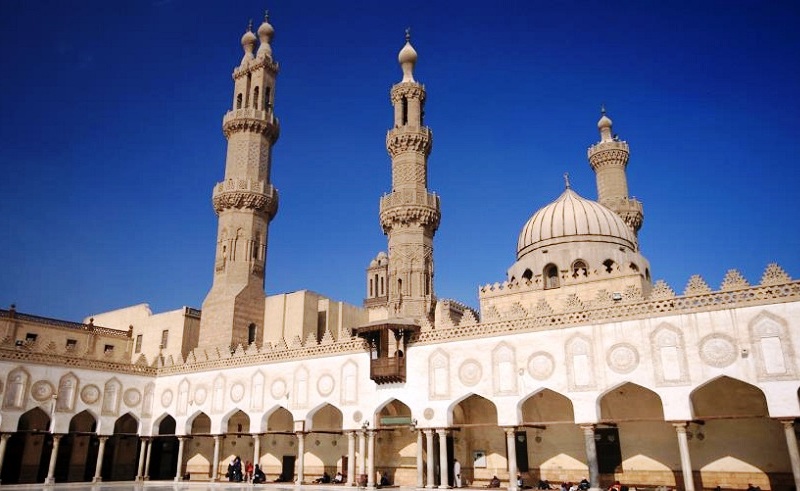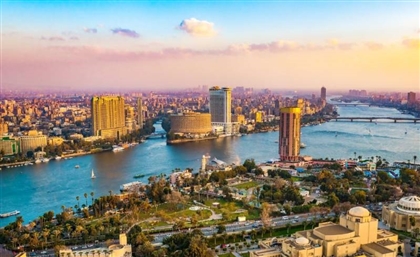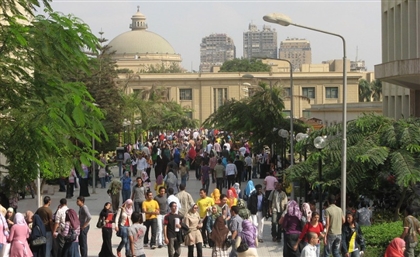Al-Azhar: Minaret of Moderation or Tool of Oppression?
A walk through the history of Al-Azhar and the evolution of its influence under Egypt's various leaders, dating from the 20th century until modern day.

Al Azhar's journey is deeply entrenched in Egypt's history. Its role has been instrumental in shaping the Egyptian identity, influencing political as well as social events in the country for over a millennium. The mosque's stone base was laid by the founder of Cairo, Gawhar Al-Siqilly, and was inaugurated in 972, two years after the foundation of Cairo, which demonstrates its profound impact on the city's history. Shortly after its establishment, the educational mosque became a major centre of learning, attracting and influencing Muslim scholars from all over the world, and having a special, almost holy effect over Egyptians. Due to the mosque's pivotal role, it has witnessed periods where it was manipulated by Egypt's rulers to advance their political agendas and others -when independent- where it was the voice of the people; dictating policies and enforcing demands upon rulers and occupation forces.
Before the de-facto British protectorate over Egypt began in 1882, Al-Azhar was the only educational institution in Egypt, and its Grand Imam was automatically granted the position of the Grand Mufti of Egypt. The period saw modernization efforts by subsequent rulers of Egypt, in attempts to establish a parallel secular form of education to meet the country's needs for intellectual progress, which was in line with major economic reforms taking place at the time. Reformers like Gamal El Din El-Afghany and Sheikh Mohamed Abdou rose to prominence as they reinterpreted religious text which kept Al-Azhar in intellectual stagnation for centuries. In 1899, Mohamed Abdou was appointed by the popular Khedive Abbas II as the Grand Mufti of Egypt, effectively separating the position from that of the Grand Imam of Al Azhar for the first time in history.
 (Students of Al-Azhar in its famous yard, 19th Century)
(Students of Al-Azhar in its famous yard, 19th Century)
Al-Azhar, however, remained virtually independent from the state for the first half of the 20th century. When Moustafa El Maraghy was selected as the Grand Imam of Al Azhar in 1928, the decision faced tremendous resistance from prominent Muslim scholars, who deemed El-Maraghy incompetent because of his liberal views. Being a devoted student of liberal Islamic scholar Mohamed Abdou, El-Maraghy didn't spare efforts in attempting to modernise the institution and aligning its values with the Egyptian liberal awakening taking place. After the Free Officers Revolution in 1952, which put an end to the Muhamed Ali Dynasty and established the first republic in Egypt, Al-Azhar underwent a series of reforms that manifested in a 1961 law regulating and redefining Al-Azhar. "When Al-Azhar was entirely independent before the British occupation, there were no educational facilities in Egypt but those of Al-Azhar, which had a major impact on advancing illiteracy and ignorance among Egyptians," Islamic researcher, Ahmed Abdou Maher, says on Al-Azhar's role in the 19th century. "And, when it was independent before the 1952 revolution, it forbade girls to receive education at its facilities [...] for no reason but the lack of belief in women in Al-Azhar's culture."
 (Moustafa El-Maraghy, early 20th century)
(Moustafa El-Maraghy, early 20th century)
Gamal Abdel-Nasser dramatically changed the face of Egypt, with Al-Azhar being at the forefront of the deep modernising reforms that Nasser undertook. The 1961 Al-Azhar law issued by Nasser, broke down the structure of Al-Azhar into five different institutions and designated the appointment of its Grand Imam as an executive privilege exercised by Egypt's President, virtually ending its independence. Nasser, however, didn't enact more aggressive reforms advised by the influential liberal writer, Taha Hussien, who proposed a redesigning plan aiming at completely deconstructing Al-Azhar and vanquishing its influence. Nasser sought to make Al-Azhar a nationalistic institution working in the government's favour instead.
 (Left to right: Anwar El-Sadat, Gamal Abdel-Nasser, Imam Mohamed Al-Fahamy)
(Left to right: Anwar El-Sadat, Gamal Abdel-Nasser, Imam Mohamed Al-Fahamy)
From the 1950s onward, Al-Azhar became void of authority, slowly turning into a bureaucratic religious symbol frequently used by the state to legitimise its actions and decisions. A prominent example of this is a fatwa issued by Al-Azhar in 1979 stressing that the time of peace with Israel has come (after years of calling for Jihad against the Israeli occupation of Palestine), which was a legitimizing force behind Sadat's Camp David peace accords after a number of condemnations from Muslims all over the world. The infamous fatwa, however, helped contain public anger in Egypt.
 (Camp-David Peace Accords, 1979)
(Camp-David Peace Accords, 1979)
Al-Azhar's strengthened its position as the state's religious backbone well into the 21st century under Mubarak. Following local media news reports claiming Mubarak's illness in 2007, then-Grand Imam of Al-Azhar Mohamed Sayed Tantawy, issued a fatwa which legitimised lashing journalists -80 times- who publish 'misleading' information, a decision that faced tremendous backlash, lawsuits, and nation-wide calls to oust Tantawy. "Why is Al-Azhar not issuing fatwas on major issues like police torture, election fraud, monopolisation of power, and spoiled food?" Egyptian journalist, Fahmy Howaidy, wrote following the controversial fatwa. The fatwa symbolised Al-Azhar's utter obedience and total alignment with the political authority, which was a situation on the verge of another dramatic change.
 (Grand Imam, Mohamed Sayed El-Tantawy)
(Grand Imam, Mohamed Sayed El-Tantawy)
In 2012, amid fears of the rising influence of radical Islamists following January 25th revolution, Supreme Council of the Armed Forces (SCAF) issued a law which gave Al-Azhar back some of its independence by removing the President's right to appoint the Grand Imam, granting the privilege to a high council of Al-Azhar scholars instead. The law successfully sheltered Al-Azhar from being infiltrated by the Muslim Brotherhood during the brief presidency of Mohamed Morsi. In 2014, Egypt's new President Abdel-Fatah El-Sisi cited reinterpreting and purifying religious ideology as the main goal of his presidency, urging Al-Azhar to take steps on the path of a “religious discourse that is in keeping with its times,” and calling for a "need to revolutionise our religion.”
Al-Azhar current Grand Imam, Ahmed Al-Tayeb, who was appointed by Mubarak in 2010 and publicly supported the ousting of Mohamed Morsy in 2013, purposely ignored El-Sisi's demands of revising religious speech, shifting the focus instead on prosecuting individuals who dare to question its agenda or curriculum. Towards the end of 2014, Al-Azhar released a statement refusing to consider ISIL (Daesh) as an apostate (a fatwa that was systematically issued against liberal intellectuals and theorists), prompting journalists, researchers, and intellectuals to attack the institution and question its values. "The ulema (scholars) can't consider a true believer an apostate no matter how bad their sins are," read Al-Azhar statement.
In a popular talk show on TV station Cairo Central in 2015, Islam El-Beheiry, an Egyptian researcher and head of Islamic Studies department at Youm7, consistently attacked Al-Azhar's heritage of interpreting Islam using references like Sahih Al-Bukhari, an ancient collection of prophetic traditions, which is frequently used by fundamentalists to legitimize their stiff views. Al-Azhar filed several lawsuits to stop the broadcasting of El-Beheiry's talk show and to imprison him for blasphemy. The court ruled in favour of Al-Azhar and slammed El-Beheiry with a 5-year prison sentence, which was later reduced to one year. Al-Azhar didn't stop there, it also began employing its new-found strength and independence in defying Egypt's executive authorities. "Are books and individuals from our Islamic heritage integral parts of Islam? Does analysing and criticising them constitute blasphemy?" Islam El Beheiry said to Lamis Al-Hadidy following the ruling. (Islam El-Beheiry in police custody, 2015)
(Islam El-Beheiry in police custody, 2015)
In 2016, the Egyptian government decided to unify topics of Friday sermons by issuing official written sermons to mosques' imams - usually Al-Azhar scholars - around the country. The move signified the governments' efforts to control religious speech and curtail Al-Azhar's influence on the public. The decision was rejected by Al-Azhar, which claims it would "distort the connection between the Imam and listeners". The decision was enforced nevertheless despite wide opposition from Al-Azhar. In a famous televised speech on January 24th, in the presence of Imam Ahmed Al-Tayeb, El-Sisi demanded a pro-women revision of Islam's stance on verbal divorce, a common practice granting men the right to divorce their wives without the need for official written documentation, which usually results in Muslim women embarking on long legal struggles to earn their natural civil and religious rights as divorcees. Al-Tayeb kept a displeased stance during the speech, and major scholars of Al-Azhar later attacked El-Sisi's proposal which provoked a media war against Al-Azhar from pro-government media outlets.
(Abdel-Fatah El-Sisi's Speech on January 24th)
The mentioned incident, in addition to Al-Azhar's quickly-expanding record of legally prosecuting liberal intellectuals and reformers, indicate that Al-Azhar is coming out of its shell, refusing to be silenced, pushed aside, or manipulated. Egyptians are now facing a popular religious institution with a backwards agenda and strong legitimate legal standing, which isn't subject to executive authorities. Al-Azhar's growing power and influence is alarming liberal thinkers and artists, who feel that their freedom of speech and creativity is at stake. On the other hand, MP Mohamed Abou Hamed announced that he's drafting a new law to be presented to Parliament. When passed, it might see Al-Azhar, once again, lose its independence to the government. Until then, Al-Azhar is a loose cannon against any attempts to question or reinterpret violent text from the vast Islamic heritage it adopts. "Al-Azhar will never renew religious speech, and it doesn't believe in evolving or changing thoughts because its leaders have solidified their stances [...] The truth is they are paralysed, and their frozen thoughts and methods are outdated," believes Cairo University professor and previous Minister of Culture Gaber Asfour to El-Watan.
























